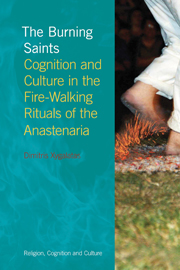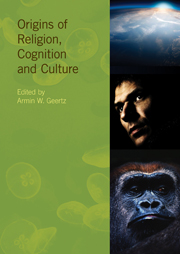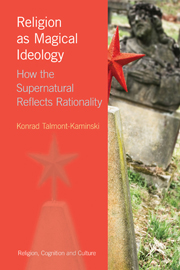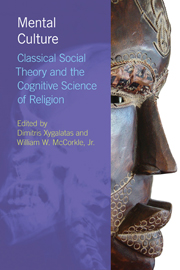4 results in Religion, Cognition and Culture

The Burning Saints
- Cognition and Culture in the Fire-Walking Rituals of the Anastenaria
-
- Published by:
- Acumen Publishing
- Published online:
- 05 April 2014
- Print publication:
- 31 October 2012
-
- Book
- Export citation

Origins of Religion, Cognition and Culture
-
- Published by:
- Acumen Publishing
- Published online:
- 05 April 2014
- Print publication:
- 30 November 2013
-
- Book
- Export citation

Religion as Magical Ideology
- How the Supernatural Reflects Rationality
-
- Published by:
- Acumen Publishing
- Published online:
- 05 March 2014
- Print publication:
- 30 April 2013
-
- Book
- Export citation

Mental Culture
- Classical Social Theory and the Cognitive Science of Religion
-
- Published by:
- Acumen Publishing
- Published online:
- 05 March 2014
- Print publication:
- 29 August 2013
-
- Book
- Export citation

